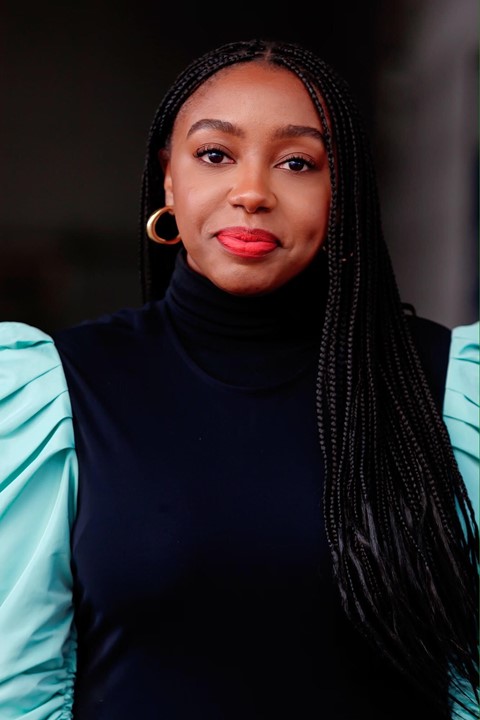Following the launch of Black In Fashion Council, Chidozie Obasi catches up with its co-founder and Teen Vogue’s editor-in-chief, Lindsay Peoples Wagner
When it comes to tackling issues surrounding race and diversity, Lindsay Peoples Wagner – the editor-in-chief of Teen Vogue – has proven to be a beacon amid the leaders at the top of the fashion system. Her frankness is at once striking, comforting and disturbing, particularly once you hear her experiences as a Black woman working in fashion.
“I’ve pretty much known and been aware of race ever since I was little,” Peoples Wagner tells me. “I’d say late elementary school for sure.” Unlike many of those who hold powerful positions in the publishing world, she started her career at the bottom – working as a fashion closet intern at Teen Vogue – her talent and tenacity allowing her to climb to fashion market assistant, before moving on to what was then Style.com, and eventually serving at New York Magazine’s The Cut for three years.
Her work at the latter, which earned her an ASME Next Award for outstanding achievement by magazine journalists under the age of 30 in 2017, is a fearless statement of intent. Both there – and now at Teen Vogue – she has kept inclusivity and representation within fashion at the heart of her practice, becoming a powerful advocate within the fashion industry for transparency and long-term change.
“I’ve always felt like being Black was something I was proud of, but it has often felt like something my peers and people in the industry never saw” – Lindsay Peoples Wagner
In 2018, Peoples Wagner penned an explosive opinion piece for The Cut, while she was a features editor at the publication. Titled ‘What It’s Really Like To Be Black and Work in Fashion’, the essay unpacked fashion’s fetishisation of minorities, who are often exploited, surveying over 100 Black professionals in the industry. “Back when I wrote the piece, I spent so much time making sure to tell our narratives as Black people in the industry,” she recalls. “This approach allows for productive, sustainable change so that people that come after me in this industry can have a better experience.”
The ‘diversity conversation’ has become more animated in the last few years, seeing a handful of leaders of colour take the helm of high-profile titles, like Edward Enninful at British Vogue, Elaine Welteroth, Peoples Wagner’s predecessor at Teen Vogue, and most recently, the appointment of Samira Nasr as editor-in-chief of American Harper’s Bazaar. But, despite her success, Peoples Wagner refuses to shy away from the brutal reality of racism and the arduous journey of navigating an often-discriminatory industry.
“I’ve always felt like being Black was something I was proud of, but it has often felt like something my peers and people in the industry never saw,” she says. “[Being a Black woman] is challenging. I would say it’s an emotional rollercoaster because you’re constantly trying to prove yourself to people in a system that wasn’t built for Black people.”
“This moment more than ever urged a lot of people to want to make changes ... I think we can all agree we don’t ever want to have this moment again” – Lindsay Peoples Wagner
In the wake of Black Lives Matter protests, ignited by the murder of George Floyd, fashion has faced a reckoning about the racism that is embedded within its very structures. However, a new dawn is upon us: in June, Peoples Wagner and the publicist Sandrine Charles founded the Black in Fashion Council, an organisation to hold the industry accountable for change. Backed by some 400 Black models, stylists, executives and editors, the initiative plans to help diversify fashion and nurture inclusion and advocacy. Launching officially this week, they announced 38 worldwide partners, from Calvin Klein to Glossier, with whom they will work for the next three years.
“My main concern was that I feel like we’ve had the moment of calling people out, but there’s been a need to uproot the systematic racism and elitism that runs rampant in the fashion and beauty industry,” Peoples Wagner says, touching on the need for real change rather than the “cancelling” of problematic people and companies. “This moment more than ever urged a lot of people to want to make changes ... I think we can all agree we don’t ever want to have this moment again.”
Peoples Wagner is a force to be reckoned with. Her natural talent brought her success early in her career; in the years since, she has dedicated her work to seeking justice and advocating for change in all she does. “To keep the momentum, we have to make changes behind the scenes,” she says – advice which seems as urgent as ever.
Find out more about the Black in Fashion Council here.
